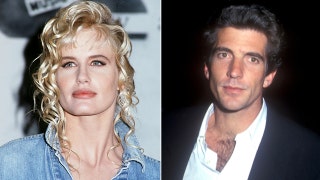LOS ANGELES – “I wanna leave my footprints on the sands of time; know there was something there, and something that I left behind,” Beyonce sang before the United Nations General Assembly in New York to promote World Humanitarian Day in 2012, offering a rendition of her song “I Was Here.” “When I leave this world, I’ll leave no regrets; leave something to remember so they won’t forget. I was here.”
But little did pop star know the impact her words would have on the youth of Baghdad two years later.
“Those words were so powerful, so life-changing,” Mohammad Huzaifa Muluki, a 23-year-old student in Baghdad told FOX411. “I know it is difficult to do, but we want to change the world and that song made us realize we can. We can leave in a world with peace, without war, without terror.”
A lot of small steps, he said, can lead to big changes.
The idea was initially sparked by a young student, Muna Abdel Halim, who coordinated with Muluki and just three other friends from university to quickly launch a humanitarian campaign of the same name – “I Was Here.” Today it boasts an ever-growing list of more than 150 young volunteers, all with a mission to provide services that will help those in need.
“Every day we see and hear images and stories of pain and suffering in our own neighborhoods and in countries far away. But we also find acts of kindness, great and small,” he continued. “One day, one message, one goal to inspire people in Iraq to do something good no matter how big or small – for someone else.”
The UN declared August 19 World Humanitarian Day after the 2003 bombing of the UN building in the Iraqi capital, in which 22 people were killed including the organization’s representative, Sergio de Mello. The occasion was created to inspire people to lend a hand to those in need – a notion which the students behind “We Were Here” take very seriously.
The campaign operates three main groups – one is devoted to humanitarian operations, another uses its time to service-type tasks and the third focuses on technical work. The campaign is devoted to rehabilitating archeological sites and spotlighting arts, culture and the history of the ancient land. For one, they cleaned up and reopened the Mustansiriya Madrasah, a famous historical school in Baghdad which was founded in 1233. They also routinely collect food and clothing and give them to those who go without.
For Muluki however, the most rewarding time spent is with children. He and his fellow volunteers cooperated with a local school to provide a wheelchair for a student with special needs who had dropped out due to the challenges associated with his disability, and they spend time assisting sick and injured children in local hospitals.
“We also have our own ‘Make-A-Wish’ program. When I see a child with something like cancer, my heart just breaks,” he said. “We talk to them and just try to grant whatever their last wish might be.”
“I Was Here” does not accept financial contributions and instead urges Iraqi youth to give their time to promote a message of positive message of peace and acceptance. But given the hardships that have plagued the war-torn country for years, Muluki said each venture out comes with risks. One member even lost a leg when he was injured by a car bomb.
And while Muluki and his friends didn’t even know who Beyonce was prior to her 2012 UN performance, the volunteer’s young children now dance around singing “We Were Here.”
“We’re planting the idea of goodness in the hearts of people on the principle that Beyonce sings – ‘do something good somewhere for someone. We’re educating people in Iraq on their human rights,” Muluki added. “Like you, we want friendships. We want to live in peace. But now most of the time it’s so dangerous outside, we have to just stay at home.”
Follow @holliesmckay on Twitter.














































